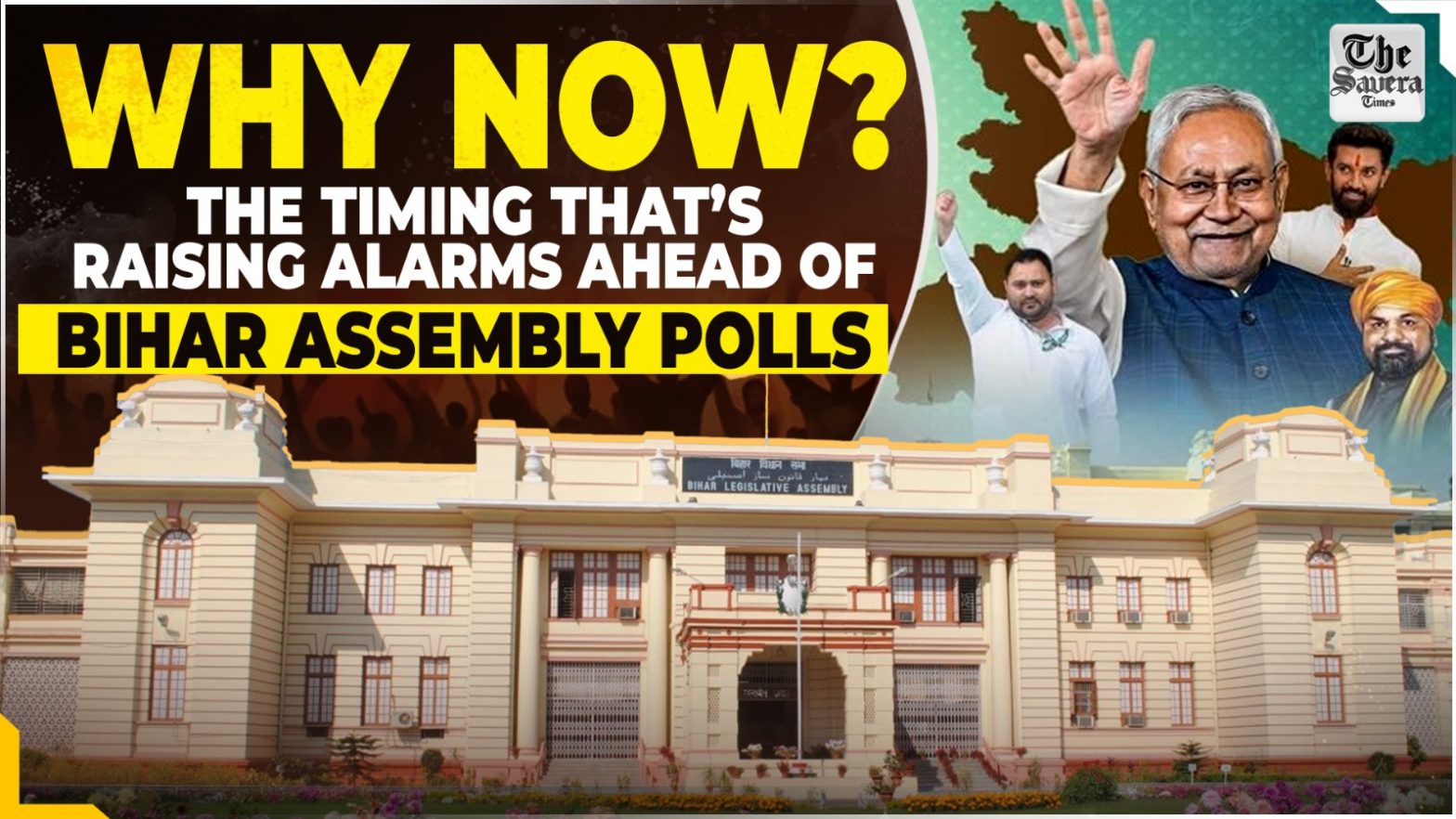
The Supreme Court’s recent hearing on the Special Intensive Revision (SIR) of voter lists has sparked a political storm, with opposition parties fiercely criticising the process as a veiled attempt to disenfranchise voters ahead of elections.
The contentious case, heard by Justices Sudhanshu Dhulia and Joymalya Bagchi on July 10, 2025, has fueled heated debates over its timing and execution.
The bench suggested that Aadhaar, voter ID, and ration cards should be accepted for verification to make the process more inclusive. The ECI reported that by July 10, 66.16% of enumeration forms (over 5.22 crore) had been collected, indicating significant progress.
The court has asked the ECI to respond to concerns by July 28, with the next hearing scheduled before the draft voter list is published on August 1, 2025.
Some Key Observations by the Supreme Court:
What is the Bihar Electoral Revision Case?
Notably, the Bihar Electoral Revision Case centres on the Election Commission of India’s (ECI) decision to conduct a Special Intensive Revision (SIR) of electoral rolls in Bihar ahead of the state assembly elections scheduled for October-November 2025.
Announced on June 24, 2025, the SIR aims to update the voter list to ensure only eligible Indian citizens are registered to vote.
This process involves verifying the details of Bihar’s 7.9 crore electors, requiring them to submit enumeration forms by July 25, 2025, to remain on the voter list. The last such revision in Bihar occurred in 2003, making this a significant exercise after 22 years.
The timing and method of the SIR have sparked controversy, leading to multiple petitions filed in the Supreme Court by opposition parties, activists, and civil society groups like the Association for Democratic Reforms (ADR).
These petitioners argue that the revision could disenfranchise millions, particularly marginalized groups such as Muslims, Dalits, and migrant workers, due to strict documentation requirements and the rushed timeline.
Why Conduct the Revision Before Elections?
The ECI claims the SIR is a constitutional mandate under Article 326, which ensures only Indian citizens above 18 can vote.
The revision aims to remove ineligible voters, such as non-citizens, deceased individuals, or duplicates, citing issues like rapid urbanization and migration.
However, the Supreme Court and critics have questioned why this exercise was initiated just months before the elections, raising concerns about its potential impact on voter inclusion.
Key Reasons Cited by ECI:
Concerns Raised:
Political Reactions
The SIR has triggered a political storm. The opposition, including Congress, RJD, and TMC, alleges the revision is a politically motivated move to suppress votes from certain communities. Leaders like Rahul Gandhi and Tejashwi Yadav led protests, including a “chakka jam” in Bihar, against the ECI’s decision.
The BJP, however, defends the SIR, arguing it’s necessary to eliminate “bogus” voters and accuses the opposition of protecting illegal voters. Political analyst Prashant Kishor questioned the need for a new voter list so soon after the 2024 Lok Sabha elections, suggesting amendments to the existing list would suffice.
Why the Controversy Matters
The Bihar Electoral Revision Case goes to the “root of democracy,” as the Supreme Court noted, because it involves the fundamental right to vote. The rushed timeline and initial exclusion of common identity documents raised fears of disenfranchisement, especially in a state with a large migrant workforce and flood-affected regions.
With 87% of Bihar’s population holding Aadhaar but only 2% possessing passports, the court’s push for broader document acceptance aims to prevent exclusion.
The case highlights the delicate balance between ensuring electoral integrity and protecting every citizen’s voting rights, with implications for the fairness of the upcoming elections.
